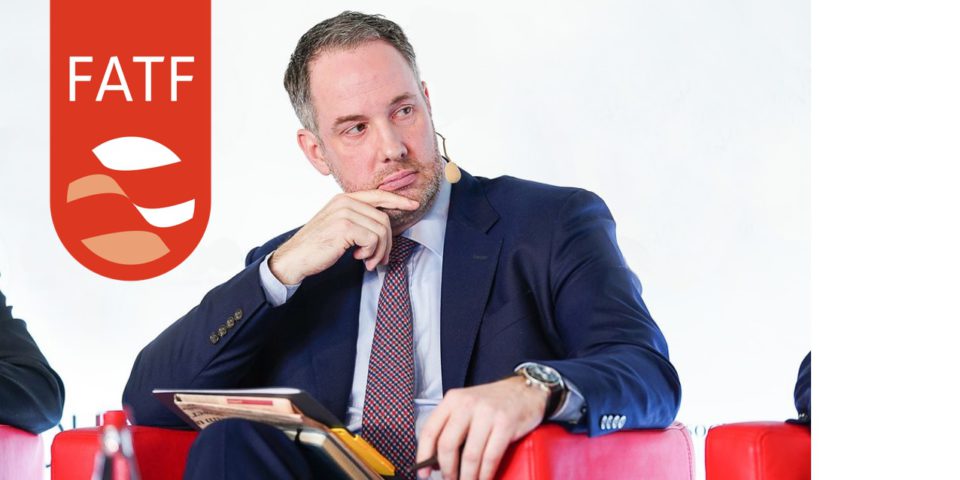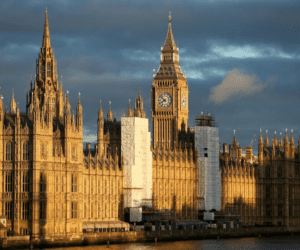By Stephen Rae for AMLi
THE WORLD of anti-financial crime was convulsed today (Saturday) by the shock news FATF executive secretary David Lewis has resigned.
The impending departure spells trouble for the global battle against money laundering and financial crime – and indicates some trouble at the top of the FATF organisation.
In a passage from his resignation letter which is drawing the most attention, Lewis says: “I hope my successor will be selected as I was, and all secretariat staff are—on merit, on the basis of fair and open competition.”
This is a stinging comment, particularly for an organisation like the OECD (FATF is a component agency) which loudly champions its independence and integrity.
Of course FATF is a powerful organisation whose assessments on the robustness of a nation’s financial system to withstand financial crime and money laundering can have profound and in some cases long lasting effects. This means the agency is not endeared amongst some world leaders and financial institutions.
Just last summer EU member Malta was relegated to FATF’s “Grey List” in a major embarrassment for the island. Greylisting is seen as an opportunity for a country to get its act together and use the listing period to introduce more effective financial risk and compliance processes.
Germany is currently undergoing assessment – after a turbulent period for the country, including the Wirecard scandal and collapse, as well as persistent attacks on the credibility of financial watchdog BaFin and the FIU. Moreover, the recent general election saw police raid the finance ministry over allegations of not passing on information around money laundering suspicions.
The immediate backdrop to the resignation is set out in Mr Lewis’s letter which paints an exasperating period of uncertainty in recent contract renewal negotiations.
While his contract was rolled over for another three years he described the process as prolonged.
Lewis is seen a strong, independent minded, mission-driven CEO who has helped bring the FATF organisation into the modern world with new policies on BOs, cryptos and lauding tech in the fight against organised crime.
There is no doubt the resignation is a serious headache for the OECD and a significant setback for the global battle against dirty money. The time to find a successor – and one at his level and competence – will no doubt delay efforts to re-pivot the fight in the favour of governments and the global financial system.
It can now be revealed that on Thursday of last week Lewis wrote to staff in the Financial Action Task Force to say he was stepping down from the role.
A spokesperson at FATF headquarters in Paris confirmed the resignation to AML Intelligence but could not comment further.
“I can confirm the resignation of David Lewis from his position as Executive Secretary,” the spokesperson wrote.
“The staff of the FATF Secretariat, including the Executive Secretary, are OECD officials. This is therefore an internal matter for the FATF and the OECD. The OECD’s staff rules, including recruitment procedures, are published in full here: https://www.oecd.org/careers/Staff_Rules_EN.pdf’
Today AML Intelligence can reveal how David was unhappy with the prolonged nature of the negotiations and a clause that would mean the position would be advertised – regardless of his performance.
In his mail to staff David says: “Unfortunately, this last renewal process involved a prolonged period of uncertainty, exasperated by a proposal out of the blue to introduce a new requirement that the role be readvertised, regardless of my performance,” Lewis wrote.
The mail also urges FATF officials to continue to act without fear or favor which some observers are interpreting as holding the key to the executive secretary stepping down.
“I hope my successor will be selected as I was, and all secretariat staff are—on merit, on the basis of fair and open competition,” he writes.
“I urge you to protect the secretariat and its professional status … so that they can continue to protect and serve you, the FATF, without fear or favor.”
FATF is currently headed by its president, German finance ministry deputy Dr Marcus Pleyer.
Leading tributes to the outgoing executive secretary was John Cusack, chair of the Global Coalition to Fight Financial Crime.
“David’s leadership as Executive Secretary of the FATF has been exemplary over 6 years and a real trusted partner to many across the wider industry. He brought the task force to ask itself some very important questions with some difficult answers coming back. That no one is doing well and no one is is doing enough when viewed through an effectiveness lens is a difficult message to take but the myriad real world harms that come from financial crimes deserves an honest assessment,” said John.
“David’s clarity of message in often opaque circles will be missed, though I suspect there is much more from David to come,” he added.
Sometimes outspoken, David brought a refreshing air to the debate around combating money laundering and dirty money.
Just two weeks he was forthright in his criticism of where institutions are putting their compliance investment. He said banks were spending billions on compliance which is driving customers to find cheaper alternatives. He said the fight against FinCrime was hampered by “investment in the wrong places.”
All eyes will now be on how change at the top will affect relations between FATF and the European Commission which have improved significantly under the German Presidency of Dr Pleyer and Mr Lewis. The Commission has even publicly acknowledged the need to be more closely aligned with FATF in its plans for the EU’s new AML Authority (AMLA). There is even an argument in some sections of Brussels that the new AMLA headquarters should be in Paris to be closer FATF’s offices at the ODCE.
This approach has gone against other opinions in the European Parliament where there is a view the EU should be even more proactive or indeed independent of FATF.
During the summer FATF added Malta to its “Grey List” which was not a total surprise but went a lot further than the Council of Europe’s MONEYVAL assessment of the Meditteranean island. It was also an embarrassment for the EU, as Malta is now the only Member State on the “Grey List.”
In his speech two weeks ago, Mr Lewis called for a more “joined up approach between law enforcement and banks”, as well as “better public-private collaboration”, as well as “more public-private partnerships”.
These partnerships should “expand across borders and enable a more dynamic assessment of risks and prioritisation of effort”.
He stressed that “we need not only a risk-based approach, but an intelligence led approach”, which means “more specific information” and “actionable intelligence being shared in a way that protects privacy and human rights but doesn’t close down access to the financial system”.
He told the Cambridge University International Symposium on Economic Crime we “need to see better use of technology” to tackle money laundering, which will serve for “smarter, more efficient and effective action”.
Speaking about a recent proposal by the Wolfsberg Group, he said “banks should be incentivised and rewarded by supervisors for providing really useful information to the police and not just ticking the boxes for the sake of regulatory compliance”.
Money laundering has led to banks alone spending “hundreds of billions”, resulting in increased costs to customers, which is pushing demand for “alternative, cheaper, easier and riskier ways for people to send and receive money around the world”.
Mr Lewis warned that money laundering is a problem that “leaders in most countries still don’t properly understand” and so are not “genuinely motivated to act upon”. He added that although he understands there is a cost in dealing with this problem, “we have to consider the real cost of not doing so”.
He argued that “we can make a great start by better allocating current resources”, and says that “the investment being made is all in the wrong places”. He explains that currently banks “monitor every transaction regardless of risk, priority or intelligence and FIUs are struggling to keep records of millions of suspicious transaction reports on Excel spreadsheets”.
Mr Lewis added that “what if a fraction of investment was directed to authorities for analysing, investigating and dissemination of actionable intelligence to law enforcement”.
He called for “wider recognition for good AML practices” and said there is a chasm between what the FATF recommends, what governments do, what the police are able to do, what regulators do and real world implementation by firms”.
However, he argued that “the opportunity for change and impact today is bigger than ever” and added that “today is less about global standards and is certainly not about ticking boxes, screening everything and regulators taking a zero tolerance approach”.
“It’s about creating the space necessary for innovation and collaboration and accepting that we won’t catch or stop everything”, said Lewis, who added that “if you work in AML the opportunity to work and make a difference has never been greater”.








